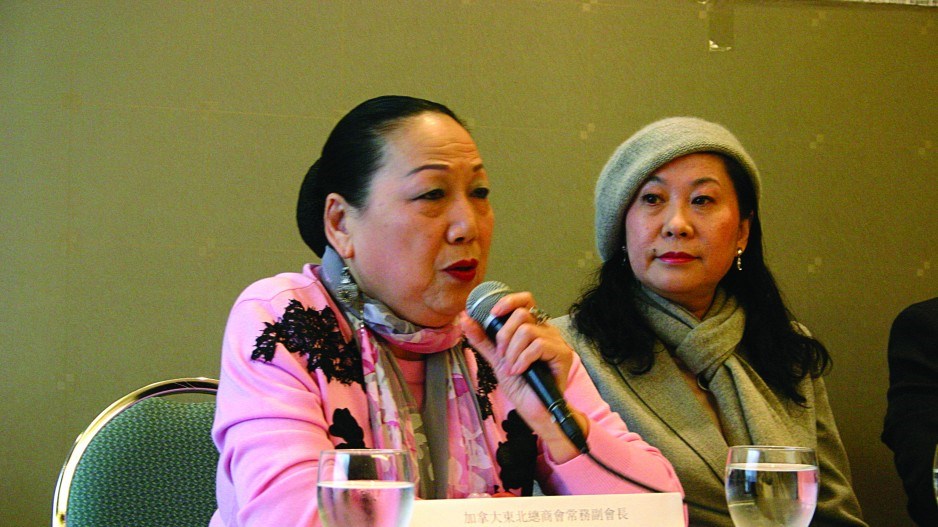BC’s provincial government will consider funding support for local small- and medium-size business groups going to Asia to attend major trade shows like the upcoming Belt & Road International Food Expo (BRIFE) in Hong Kong, a top provincial trade official says.
George Chow, minister of state for trade under the new NDP coalition government, said that because business delegations are in essence doing work for the province when attending trade shows, it is only fair that they look for some provincial support.
“I know groups like the North American Investment Association [NAIA, which is leading the Canadian delegation to BRIFE in June] have been very active in the previous government in looking for assistance,” Chow said at an NAIA news conference. “We’ll look seriously at helping organizations such as NAIA when they are clearly doing work on behalf of the province in promoting trade.”
When pressed by an attendee, Chow said the province will look at the funding issue this year.
“We just got into government six months ago, so we have a lot to do and a lot to learn,” Chow said, noting that B.C. Premier John Horgan will lead his first trade mission to Asia on January 20, hitting Guangzhou, Beijing, Seoul and Tokyo. “But we are very happy to see groups like NAIA doing multiple trade shows and promoting our agricultural and seafood products…. The Asia-Pacific region is very important to us.”
NAIA president Amy Huang has been lobbying provincial and federal government officials for financial support for the Canadian delegation, which she hopes will include at least 50 companies from across Canada.
Huang said this year’s expo is especially important, given the link-up to China’s One Belt, One Road (OBOR) economic initiative, aimed at building transportation infrastructure across Central, Southeast and South Asia to create a modern Silk Road to Europe. Becase Ottawa’s discussions with Beijing on a bilateral free-trade agreement hit a snag in December, Huang said it is crucial that B.C. build up whatever trade links it can with China – especially in food products, where many items are already tariff-exempt.
Other Chinese-Canadian business groups agree that, with or without a free-trade agreement, an OBOR-related expo at which Canada can promote its food exports to markets beyond China is a lucrative opportunity, even as e-commerce platforms like Alibaba (NYSE:BABA) and JD.com (Nasdaq:JD) are making in-person visits less pivotal in establishing business ties.
“Even with e-commerce also providing a new platform, an event like this one is still very valuable,” said Yan Han, vice-president of the Canada-China Northeast General Chamber of Commerce in Vancouver. “We’ve been active in the last few years in using the internet and e-commerce platforms to push Canadian food products in China, and we think there’s more opportunity in an expo like this one. With the right partners, I think we can all be quite successful in tapping into the large markets that OBOR represents.”
Helen Han, who is in charge of the Canada West region of the Canada China Finance & Investment Association, said government officials also should not underestimate the cultural significance of government funding in the Chinese-Canadian business community. She added that the amount of money is often less important than the gesture itself.
“It’s about confidence,” Han said. “People have to realize that, in the Chinese community, government involvement is a big draw. It signifies trust, and it can bring together different, smaller groups to do things in a more enthusiastic manner. Whether there’s a lot of money for support, that’s really not the point. It’s about bringing together everyone involved, and hearing what the minister said is very encouraging.”




